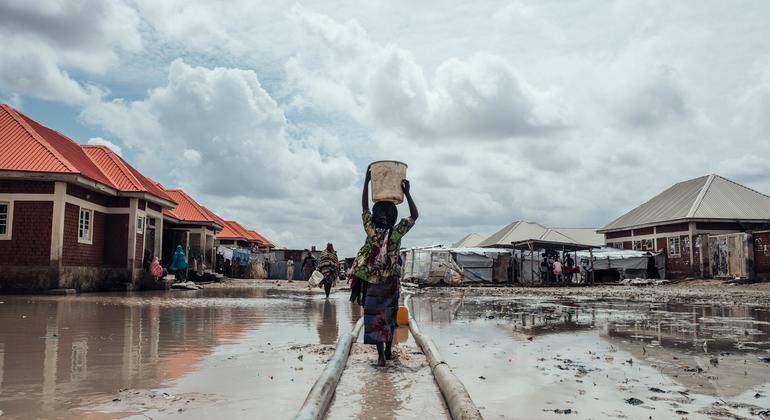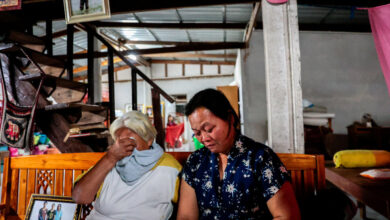Nigeria: Hundreds of thousands need aid as floods destroy homes – WFP


The Alau Dam, located more than 10 miles south of Maiduguri, the capital of Borno state, collapsed in the middle of the night on Tuesday, forcing hundreds of thousands of people to flee their homes.
Emmanuel Bigenimana, head World Food ProgrammeHis office in Maiduguri said he flew over the city in a United Nations Humanitarian Assistance Force (UNHAS) helicopter. World Food Programmeto conduct rapid damage and needs assessments.
“What I witnessed was truly heartbreaking,” he said, describing scenes of homes, infrastructure, roads, schools and hospitals submerged in water.
Sleeping on the street
“Many, many people – I’m talking over 200,000 – 300,000 displaced people – are crowded into some of the IDP (internally displaced person) camps and on the streets.”
The dam breach caused the river to overflow 50 percent of Maiduguri and the state government has issued evacuation orders for people in affected areas, calling for humanitarian assistance, WFP reported.
Speaking from the heart of one of the refugee camps, Mr. Bigenimana said WFP had opened soup kitchens to provide hot meals to those affected and was expanding its response with authorities and partners.
The soup kitchens, located in three camps – Teachers Village, Asheikh and Yerwa – aim to provide nutritious hot meals to “50,000 of the worst-affected children, women and men who have lost their homes”, the WFP said, but more support is still needed.
Serious security crisis, economic difficulties
“This is actually an additional burden on existing crises.“This area has been facing conflict for a decade,” WFP’s Mr. Bigenimana stressed.
Borno state is one of the areas worst affected by the Boko Haram insurgency, although the United Nations said earlier this year that the situation had been brought under some control.
“Recently we have seen food inflation, food prices have skyrocketed.really affects millions of people who are facing food insecurity,” Mr. Bigenimana added.
The impact of the extreme weather is being felt across the country. About 800,000 people in 29 states in Nigeria have been affected by flooding as of September 2024, the WFP said, and more than 550,000 hectares of cropland have been inundated.
As of March this year, about 32 million people in the country were facing severe hunger.
The UN food agency says it needs $147.9 million to support food-insecure people in northeast Nigeria over the next six months.
For those affected by the floods in Maiduguri, “recovery will take a long time,” Mr. Bigenimana said.We need more resources to save lives and work together to respond to the crisis. – and also think about longer-term solutions and recovery.”




